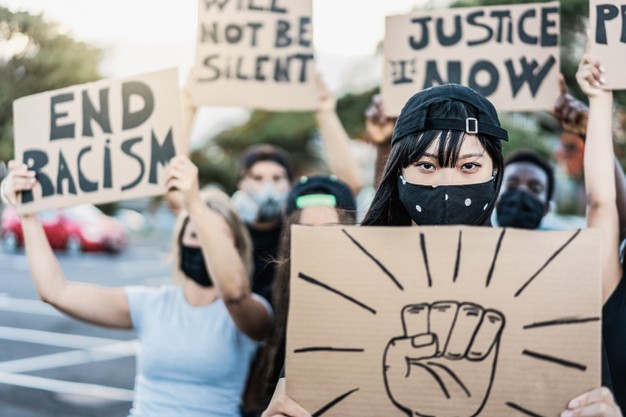
One year after the initial shutdowns of colleges and universities across the United States, mental health and the impact on international students has been widely discussed and looked at across the international student community. Studies have shown that college-age students in the 18-24 year old range have been hit the hardest by the pandemic in terms of the highest rates of depression and thoughts of suicide. The more particularly vulnerable populations of international students in this age group have been forced to deal with additional obstacles and challenges. With travel bans and new measures on maintaining visa status implemented at the start of the pandemic, along with navigating a new normal of quarantine and isolation in a foreign country away from friends and family, it’s no question that stress and anxiety have been at all time highs. International students from China, which are noted for being the largest population demographic studying in the United States for the last 15 years, have faced even more difficulties with heightened scrutiny and racism throughout the pandemic.
Anti-Asian Racism in the United States
International Students of Asian descent, particularly those from China, have dealt with stigmas and discrimination in the United States prior to the pandemic due to a number of factors related to political and trade tensions, along with alleged security threats. However, this past year has exceeded others by far with an increase in anti-Asian hate crimes by nearly 150% and an increased 833% of anti-Asian attacks in New York City. The suspected rise stems from xenophobic rhetoric perpetuated through various platforms, thought to exacerbate notions of linking a place or a people to disease, in addition to the resurfacing of negative sterotypes on Chinese culture and traditions. In a recent study, 26% of Asian-American adults across the US said they feared being threatened or physically attacked because of their race, which is a higher percentage than Black, Hispanic or white adults. One of the latest shooting massacres in Atlanta that killed eight people, among which six were Asians, by a white gunman, has only heightened anxiety and fear amongst those of Asian descent and highlights the importance of creating racial justice and solidarity.
Looking at the Numbers
According to the most recent Open Doors report, China remained the top country of origin for international students across the US in the 2019-2020 academic year. However, this increase was significantly smaller compared to years past and more notable was a smaller rise of .8% for those willing to host the 372,532 Chinese students. It will be interesting to see how the recent events from this past year reflect numbers going forward of this demographic and what this means for the US economy, as international students contributed over $44 billion dollars to the US in 2019 with over $15 billion from Chinese students.
Creating Solidarity

With a rise in hate crimes against minorities, along with the countless deaths of those such as Ahmaud Arbery, Breonna Taylor and George Floyd taking on a movement of its own this past year, social justice is at the forefront of our society and can no longer be ignored. Just as hate and racism can spread quickly through the media, so can reform. This could be viewed as the silver lining, as light is shed on the injustices and voices are being heard. NYU’s Office of Global Inclusion denounced anti-Asian racism in April of 2020, but recently issued a statement on February 16th communicating their solidarity with the Asian, Asian American and Pacific Islander (AAPI) communities encouraging students to attend various university and student-led virtual events promoting inclusion and understanding. Many universities have followed suit. After UC Berkeley’s apology for listing xenophobia under ‘common reactions’ to coronavirus in early 2020, the University, along with others, have since created AAPI support groups along with easy and accessible ways to report incendences of hate, violence, discrimination and harassment. Other organizations are making efforts to raise awareness as well, such as the Massachusetts General Hospital Center for Cross-Cultural Student Emotional Wellness creating an annual conference for professionals dedicated to support the wellbeing of Asian and Asian American students.
International Students in the Future
The new White House Administration is already taking steps to revoke travel bans and reform restrictive policies impacting international students, in addition to strengthening relationships and creating strong ties allowing for shared information across foreign governments. The initiatives are not going unnoticed, and the volume of applications for international students is up! According to numbers from the Common App, international student college applications have increased by 9 percent as of January 22, 2021 from the year prior. With the lifting of travel bans and other visa restrictions in conjunction with COVID-19 vaccines becoming more available worldwide, it’s hopeful that these numbers will continue to climb. While this is all good news, what’s also notable is that the number of applications from China is down by 18%. The US has a lot of work ahead in terms of continuing to create a place of peace and unity for all. It’s the hope that through education, continued discussion and programming that change can be made and all voices are heard.
References:
Leah Campbell “Adults Under 24: The Loneliest Age Group During COVID-19 Restrictions” 2020. [online] Healthline.com. Available at: https://www.healthline.com/health-news/adults-under-24-the-loneliest-age-group-during-covid-19-restrictions [Accessed 29 March 2021]
Tiffany Hsu “Anti-Asian Harassment Is Surging” 2021. [online] nytimes.com. Available at: https://www.nytimes.com/2020/07/21/business/media/asian-american-harassment-ad-council.html [Accessed 29 March 2021]
Mei Lamison “University community responds to surge in anti-Asian racism” 2021. [online] nyunews.com. Available at: https://nyunews.com/news/2021/03/15/anti-asian-hate-crimes-covid [Accessed 30 March 2021]
Viggo Stacey “Open Doors: fall survey suggests new starts down 43%” 2020. [online] thepienews.com. Available at: https://thepienews.com/news/us-sees-first-drop-intl-student-numbers-in-15-years-as-covid-adds-pressure/ [Accessed 30 March 2021]
Lei Zhang and Erika Lee “Anti-Asian Xeneophobia” 2020. [online] unm.edu. Available at: https://immigrantcovid.umn.edu/anti-asian-xenophobia [Accessed 29 March 2021]
The Open Doors Report on International Exchange 2020. [online] opendoorsdata.org. Available at: https://opendoorsdata.org/annual-release/
Report: US introduces restrictions for some Chinese visas. 2018. [online] icef.com. Available at: https://monitor.icef.com/2018/05/report-us-introduces-restrictions-for-some-chinese-visas/ [Accessed 30 March 2021]
Category: Health & Safety Abroad, International Students in the USA, Study Abroad
Tags: Anti-Asian Racism, Asian and Asian American students, Chinese students, depression, discrimination, inclusion, International students, mental health, negative sterotypes, pandemic, quarantine and isolation, racial justice and solidarity, xenophobia


Recent Comments